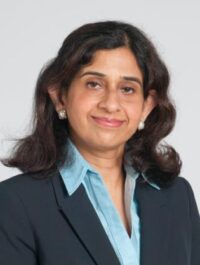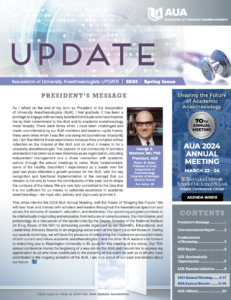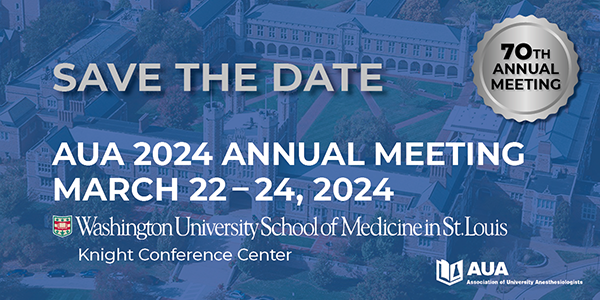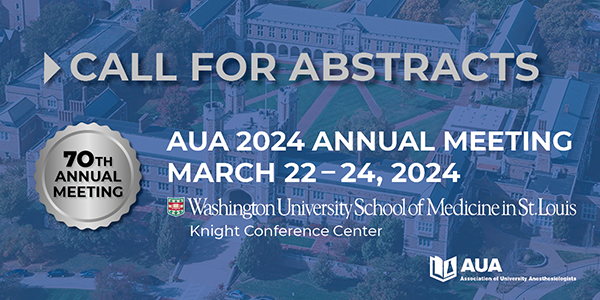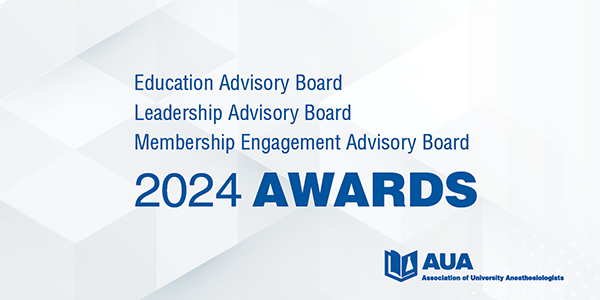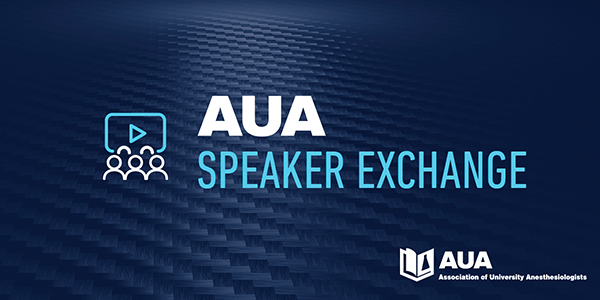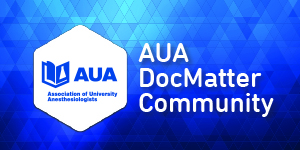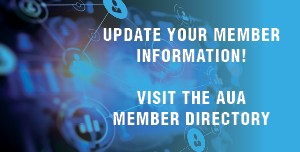EAB at the AUA Meeting 2023
This year's AUA meeting was a fantastic compilation of various activities for the academic anesthesiologist and included panels on different topics of interest, posters, and oral presentations by award winners. The Educational Advisory Board (EAB) had a significant presence at the AUA meeting. They hosted two 60-minute panels on topics that were very relevant and applicable to those who teach and train residents, fellows and faculty.
The first panel was presented on day one of the meeting and titled "Reaching the Peak: Innovating Education Models Using Deliberate Practice for Skill Acquisition.” Dr. Teresa Mulaikal moderated this panel and introduced the topic and the speakers: Drs. Heather Ballard and John Mitchell. Dr. Ballard spoke about mastery-based learning and deliberate practice through coaching simulation and reflection. Dr. Mitchell spoke about motion sensing. Dr. Mitchell pointed out that applications and measurement were the twin learning peaks, and technology was the bridge between these two. He further clarified that technology included artificial intelligence based assessment and data visualization. The speakers discussed how immersive virtual reality simulation and time-based metrics could be used for improvements in learning technical skills.
During the business lunch session on day one, awards were presented to outstanding members for their contributions to the AUA. The EAB Education Innovation Award recipient was Dr. Matthew McEvoy of Vanderbilt University Medical Center. AUA President Dr. George Mashour announced the newly appointed members of the EAB: Drs. Debnath Chatterjee, Keith Littlewood, Norah Naughton, and Shobana Rajan.
The Presidential dinner was held at the Denver Art Museum and made for an evening of networking, collaboration, sightseeing, and great food.
The second panel of the EAB was on day two on the topic of reflective practice. The hour-long panel was moderated by Dr. Jefferey Berger. The speakers were Dr. Richard Blum and Dr. Daniel Saddawi-Konefka. The discussion was about fostering an intrinsic drive to learn, and importance was given to keeping the learner in the driver's seat. The speakers discussed that self-assessment by learners is often unreliable. At the same time, giving and obtaining feedback properly can be very challenging. While feedback needs to be direct, it should not be blunt or harsh, which can lead to emotions such as anger, embarrassment, guilt, and shame. At the same time, subtle and indirect feedback may lead to unawareness and disregard for the feedback. Using the LEAF technique (learner-engaged analytics of feedback) enhances self-reflection and improves goal-setting effectiveness and learner satisfaction. In the LEAF method, the coach and learner sit together to reflect on the comments, both positive and those intended for growth, and create goals after identifying the opportunities to work on. The second lecture was about reflection and why it mattered in medicine. It described the different stages of reflection and deliberated on the importance of pondering whether an experienced clinician would have done anything differently in a similar situation and how to apply this learning in future medical practice.
Several interested and enthusiastic AUA members attended both panels and raised thoughtful questions, leading to a very interactive discussion.
